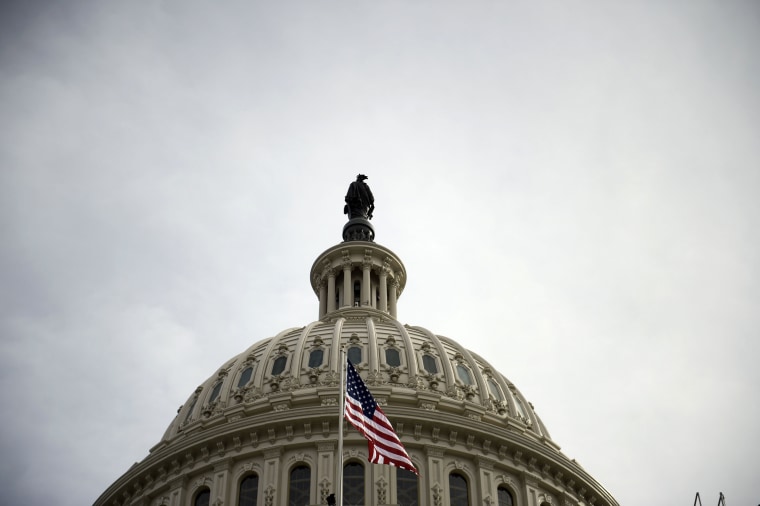WASHINGTON — Republican plans to replace Obamacare are fading fast, but that doesn't mean Congress is done with health care.
On Wednesday, the Senate Health, Education, Labor and Pensions Committee kicks off the first of four scheduled hearings this month examining the individual health care market with the goal of producing a bipartisan bill that makes modest fixes.
Ideas on the table include funding cost-sharing reduction (CSR) payments that President Donald Trump has threatened to cut off, adding a reinsurance fund to help with unexpected patient costs, and providing a backup option for counties with no insurers under the Affordable Care Act.
It's a major departure from the Senate leadership's earlier approach, which cut out Democrats and hearings in favor of closed-door negotiations among small working groups of Republicans. That effort flamed out in July when three Republican senators shot down a "skinny repeal" bill designed to advance negotiations with the House.
Despite claims of imminent collapse by Trump and other Republicans, Obamacare's markets have stabilized somewhat. Insurer profits are up this year, and no counties are currently slated to go without coverage, although some are facing steep premium increases.
But there are still significant problems. Congress and the White House haven't fully signaled how they'll fund and administer Obamacare next year, and insurers have been hiking premiums in response. In particular, insurers have been unnerved by Trump's threats to cut off the CSR payments that they are owed for lowering out-of-pocket costs.

Those payments are the subject of a House Republican lawsuit, which argues that the Affordable Care Act was improperly drafted. But Republican leaders, including HELP Chairman Lamar Alexander, R-Tenn., have said recently that Congress should remove the ambiguity and pass a bill to fund them. The Congressional Budget Office estimated last month that ending the payments would raise premiums, cause insurers to abandon some markets in 2018 and cost the federal government an additional $194 billion over 10 years.
The White House added further uncertainty last week when the Department of Health and Human Services announced that it would cut advertising for the coming insurance enrollment period by 90 percent. The news fueled existing fears that the administration might deliberately undercut the program to "let Obamacare implode," as Trump has put it.
Among the witnesses who will testify this week in the Senate are governors, including Democrat John Hickenlooper of Colorado and Republican Charlie Baker of Massachusetts, some of whom are pushing a bipartisan plan of their own. The proposal, which would fund CSRs, allow customers lacking Obamacare insurance to buy federal employee benefits and grant states more flexibility in regulating benefits, is backed by eight governors: Five Democrats, including Hickenlooper, two Republicans (John Kasich of Ohio and Brian Sandoval of Nevada) and one independent (Bill Walker of Alaska).
Any changes would have to come quickly to have an impact: By early October, insurers need to submit their final premiums for 2018 and decide on their participation.
"If they don't get anything done by October 1, they might as well punt for a year," Robert Laszewski, a health care consultant in Virginia, told NBC News.
The relevant committees in the House haven't scheduled similar hearings, and leaders so far seem content to wait to see whether the Senate passes anything before responding.
Conservatives in the House Freedom Caucus are likely to oppose measures to shore up Obamacare, which could make any bill difficult. Forty-three members in the bipartisan "Problem Solvers" caucus got the ball rolling last month with their own health care plan, but finding votes for compromise legislation amid distracting debates over the debt ceiling, funding the government and passing hurricane relief won't be easy.
